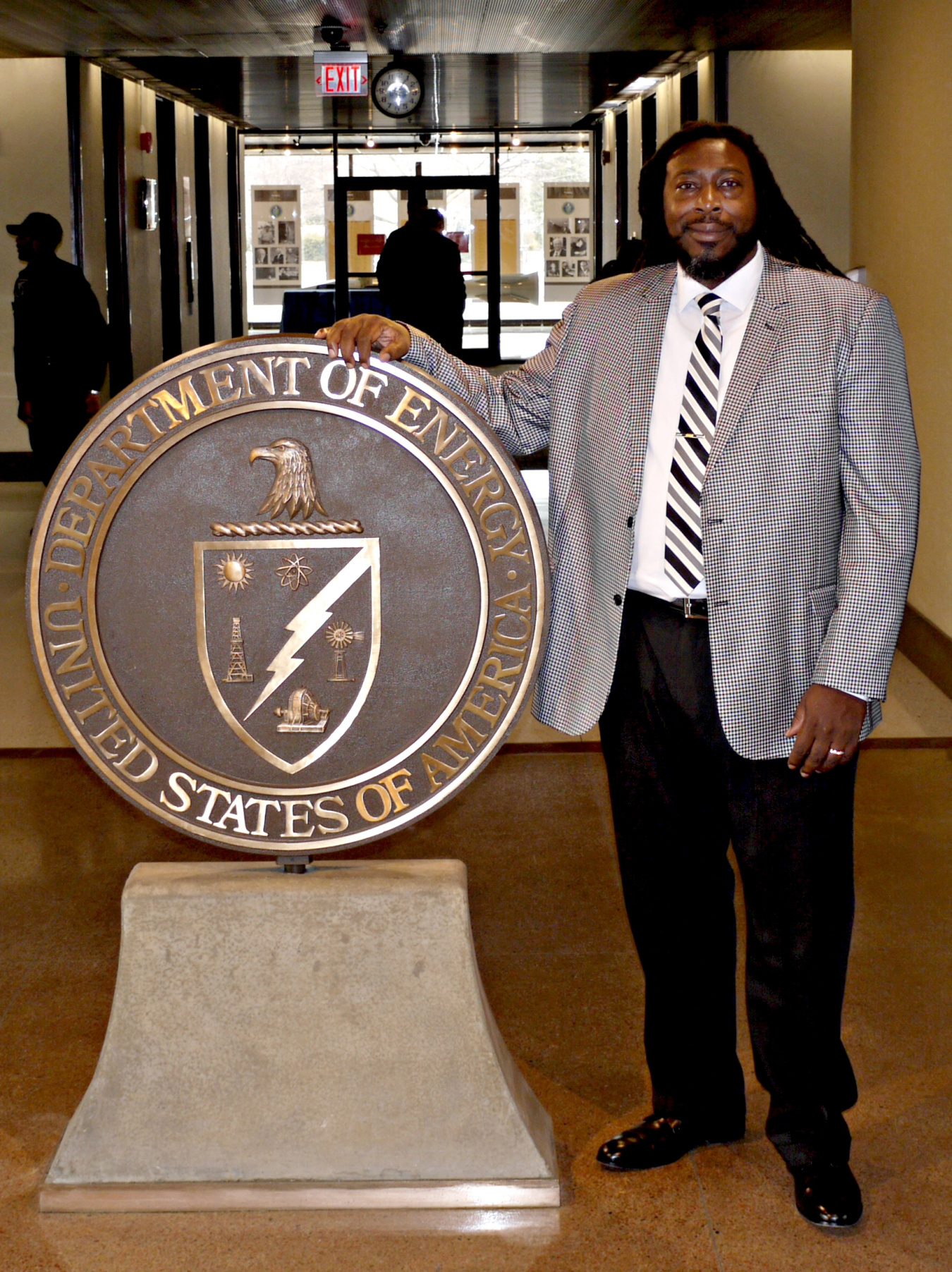Melvin Hale sat down with us recently for a brief discussion as part of a Black History Month Blog Series.
Office of Critical Minerals and Energy Innovation
February 21, 2018Melvin Hale is the Energy Department’s Assistant Building Manager at the James Forrestal building, which serves as the agency’s headquarters in Washington, D.C. In this role, he’s responsible for 1.7 million square feet of real estate, consisting of the North, South, West buildings, and cafeteria. Hale, who has been with the Department since 2011, is a retired military veteran with 22 years of service in the Air Force. He sat down with us recently as part of our Black History Month Series.
What are some advantages/disadvantages of your role?
I enjoy my job very much. One of the advantages is upper management believes in upward mobility and education. A challenge is that it can be top heavy; there’s a lot of levels to go through, but it’s workable. You just have to adapt to it, look at the bigger picture and keep on moving.
How would you describe your current thinking about diversity, and has your thinking changed over time?
My thinking is about the same. Within DOE, it’s pretty even keel across the board. Management tends to bring in more young people, which is a good thing. They are open to new ideas and big on team building too, which is also a good thing for the organization.

Who were some of your hero’s growing up?
My parents. Both went to the University of Arkansas at Pine Bluff, a historically black university. Founded in 1873, the second oldest public institution in the state of Arkansas. Back in the day, I didn’t talk to them a lot about that growing up. But recently looking through their yearbooks, I saw that Martin Luther King and Malcom X spoke there. I never knew that. James Brown put on a show, too. To know that they saw these people, I was like wow! I never thought about it like that but my folks were part of the movement. They inspired me to do things and be the person I am today. I could go on and on about who my heroes were but it’s all because of my parents.
If I had to choose just one maybe two, it would be Malcom X and Muhammad Ali. They were both outspoken. Malcolm X spoke the truth, he was never violent, he just didn’t believe in turning the other cheek, which I never did either. Growing up in St. Louis, I saw a lot of racism. I remember moving into the nice neighborhood and then later all of our white neighbors moving out or waking up and seeing our lawn all torn up (lawn job) by someone driving through it. Yet we pressed forward.
What’s one thing about you people would be surprised to know?
I write poetry. For more than 20 years, I’ve been writing. I used to get up and do Spoken Word, which is like Open Mic, back when I was in the military. Most were to one particular woman, who’s now my wife, so I guess they worked. ‘Hey I wrote a poem for you.’

